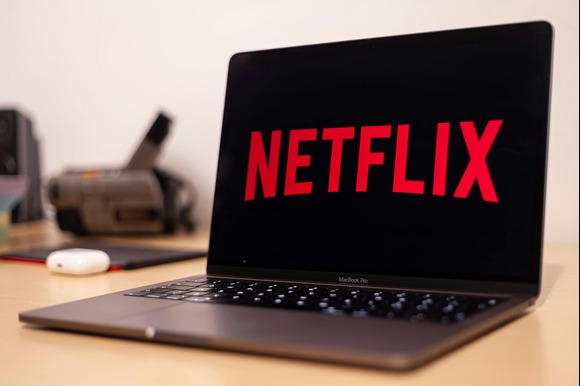Netflix has revealed that it used visual effects powered by generative artificial intelligence (AI) for the first time in one of its original TV shows. The streaming giant’s co-chief executive, Ted Sarandos, confirmed that the technology was employed to create a building collapse scene in the Argentine science fiction series The Eternaut.
Generative AI, which creates images and videos based on text prompts, helped the production team complete complex visual sequences faster and more cost-effectively than traditional methods. According to Sarandos, the technology enabled the team to execute the visual effects approximately 10 times faster, significantly cutting down production time and expense.
“The cost of it just wouldn’t have been feasible for a show in that budget,” Sarandos said. “That sequence actually is the very first generative AI final footage to appear on screen in a Netflix original series or film. So the creators were thrilled with the result.”
The announcement comes amid growing debate in the entertainment industry over the ethical use of AI-generated content. Critics argue that generative AI often builds on work created by others without permission and poses a threat to creative jobs. AI’s growing role in filmmaking was one of the central concerns during the 2023 Hollywood strike, when members of the Screen Actors Guild–American Federation of Television and Radio Artists (SAG-AFTRA) called for tighter regulations on its use.
Despite the controversy, Netflix’s financial performance has been strong. The company announced a 16% increase in revenue, rising to $11 billion (£8.25 billion) for the three months ending in June, compared to the same period the previous year. Net profits also climbed from $2.1 billion to $3.1 billion.
The better-than-expected earnings were driven in part by the massive success of the third and final season of the South Korean thriller Squid Game, which has so far racked up 122 million views globally.
Sarandos emphasized that AI tools, like the ones used in The Eternaut, can level the playing field for smaller productions by making high-end visual effects accessible. He stressed that these technologies are not about replacing human creativity but enhancing it: “The artists still decide what the final image looks like — not AI.”
The controversy surrounding AI in the creative industries continues to grow. In 2024, prominent film producer Tyler Perry suspended an $800 million expansion of his Atlanta studio, citing concerns about how AI-generated video could impact industry jobs. At the time, new tools such as OpenAI’s Sora were making headlines for producing high-quality video from basic text inputs, sparking both admiration and alarm.
Commenting on Netflix’s use of AI, Davier Yoon, co-founder of Singapore-based animation studio CraveFX, said the move was expected, given the broader trend among major studios embracing AI technology. “It feels like a matter of time,” he said. “AI definitely opens the gate to allow smaller studios to achieve big budget-looking visuals.”
Yoon, however, echoed Sarandos’ view that AI is ultimately just another tool for artists: “Ultimately, it is the artist who decides what is in the final image, not AI.”
As AI technology continues to evolve, its role in the film and television industry remains both promising and contentious. While Netflix’s adoption of generative AI marks a major milestone, it also underscores the challenges the industry faces in balancing innovation with ethical and professional standards.






